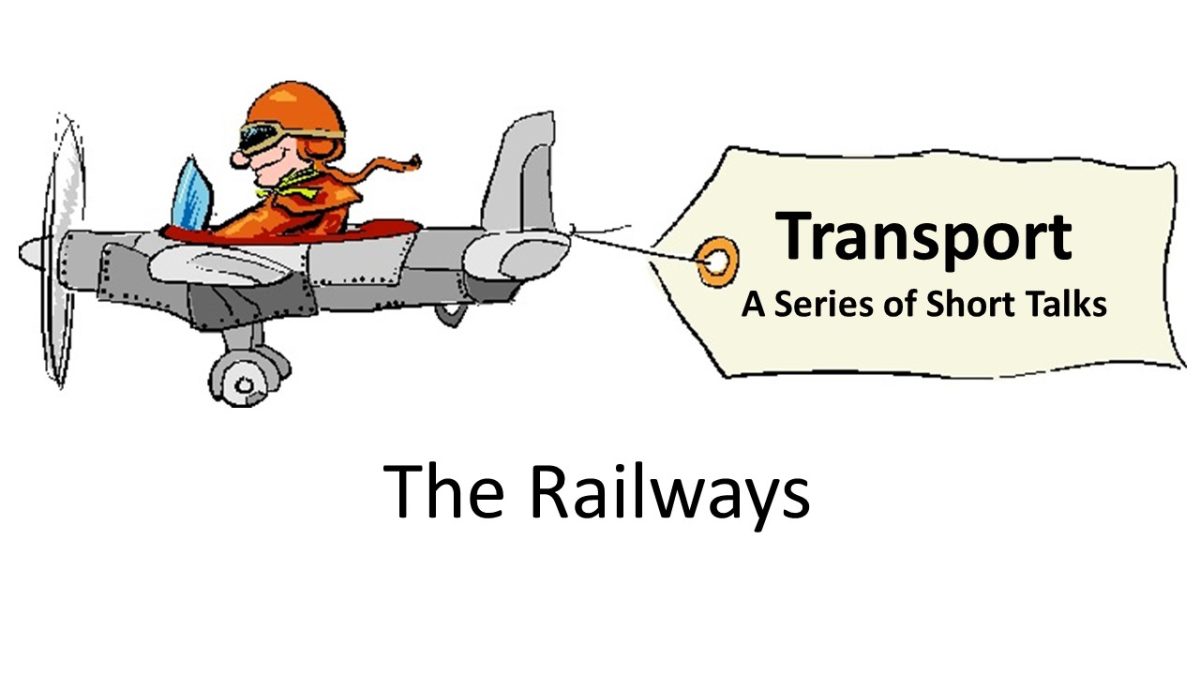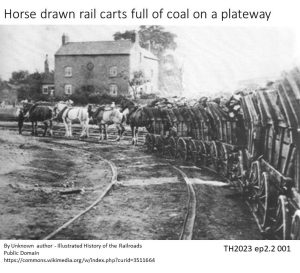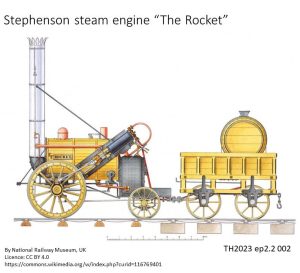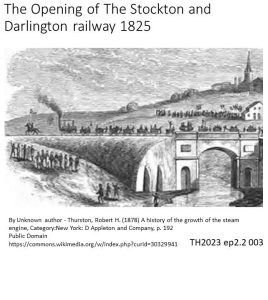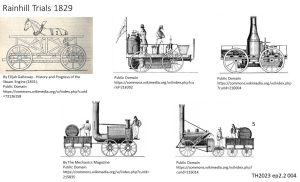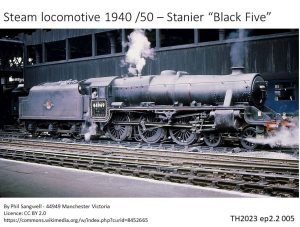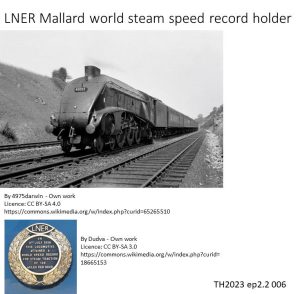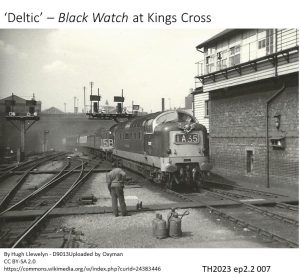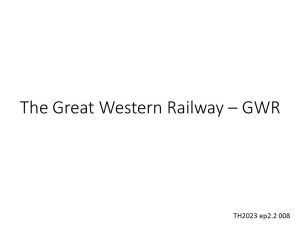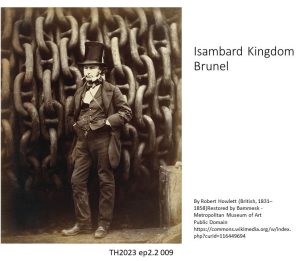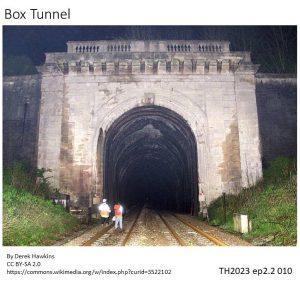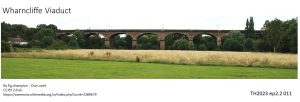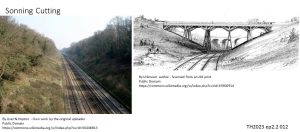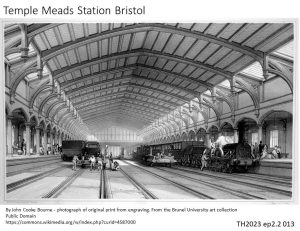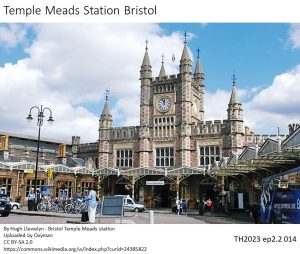Podcast: Play in new window | Download (Duration: 20:21 — 18.6MB)
Season 2023 – Talk 02.2 – The Railways
In The Railways Roger Hobbs tells two stories. First he talks about the development of the railways of Britain and then he tells us about the Great Western Railway.
Click a thumbnail below to view the image gallery that accompanies the talk.
The birth of the railways :
Many take 1825 as the birth date of Britain’s railways because the Stockton and Darlington carried its first passengers in September 1825. This ignores the fact that the first plateways had been in operation for many years before that.
The plateways carry goods on carts, usually pulled by horses. The cast iron L shaped ‘rails’ providing a smooth surface for the carts. The oldest continually operating railway in the world is the Middleton Railway in Leeds which dates from 1758.
The Stockton and Darlington:
This is the first railway to use steam locomotives. The engineer is George Stephenson who has experience of steam engines at the collieries at Killingworth. Stephenson recommends the use of malleable iron rails rather than cast iron ones.
The line opens on 27th September 1825 with the brand new engine Locomotion 1 built at the Stephenson works in Newcastle.
Liverpool and Manchester railway:
George Stephenson is the engineer for this railway. One of the major obstacles is Chat Moss which he finds a way to cross. His solution is still in use today!
The railway company holds the Rainhill Trials in 1829 to decide on the best locomotive provider. The winners? George and his son Robert Stevenson with the Rocket.
The Great Western Railway:
We hear of the building of the Great Western Railway and of its engineer Isambard Kingdom Brunel. His genius and his flaws, of Bristol Temple Meads Station, Box Tunnel and the ‘broad gauge‘.
Listen to the podcast and hear Roger tell the rest of the story.
About this podcast:
This is an edited recording of a talk given to the Farnham u3a World History Group .
It is not always possible to use all of the images presented in the original talk because of copyright reasons.
This podcast is also available through Amazon Music, Apple Podcasts, Castbox, Deezer, Podchaser, Spotify, Stitcher and Vurbl and others.
AKM Music licenses Media Magazine for use the music in this talk.
© The MrT Podcast Studio and Farnham u3a World History Group 2018 – 2023

